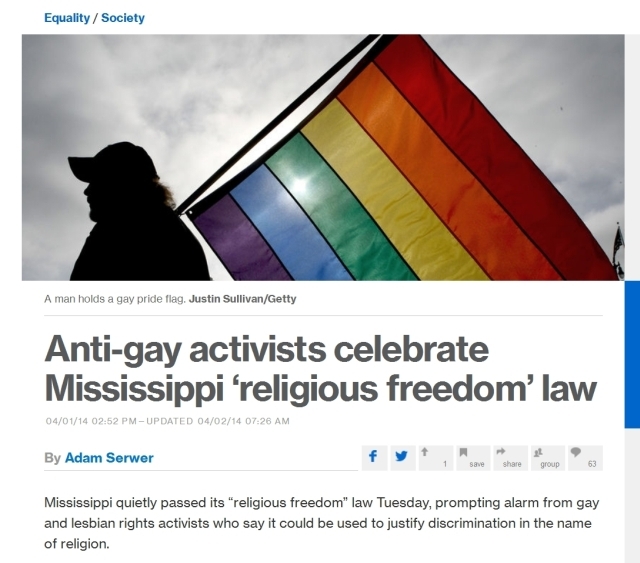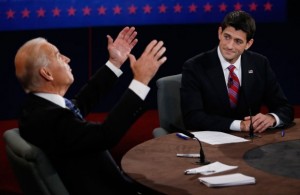No, the “socially liberal” New York Times didn’t lean all the way to the right.
But it’s difficult to imagine a conservative Christian legal organization receiving fairer, more serious coverage than the Alliance Defending Freedom did in Monday’s newspaper.
With the headline “Legal Alliance Gains Host of Court Victories for Conservative Christian Movement,” the Times used the group’s major Supreme Court victory last week in the Town of Greece, N.Y., prayer case as a timely news peg:
SCOTTSDALE, Ariz. — Alan Sears, who has run the Christian legal group Alliance Defending Freedom since its founding 20 years ago, turned to a picture of Abraham Lincoln in his office here and noted the decades of blood and tears it took to abolish slavery.
“I think there is no question that one day, this country will again recognize that marriage is between a man and a woman,” said Mr. Sears, a former top official in the Reagan Justice Department.
The comparison may or may not prove apt, but these are heady days for Alliance Defending Freedom, which, with its $40 million annual budget, 40-plus staff lawyers and hundreds of affiliated lawyers, has emerged as the largest legal force of the religious right, arguing hundreds of pro bono cases across the country. It has helped shift the emphasis of religious freedom enshrined in the Constitution. For decades, courts leaned toward keeping religion out of public spaces. Today, thanks to cases won by the alliance and other legal teams focused on Christian causes, the momentum has tilted toward allowing religious practices with fewer restrictions.
A meaty section of the story highlights the Alliance Defending Freedom’s Christian roots:
Alliance Defending Freedom was created by Christian leaders including Bill Bright, the founder of Campus Crusade for Christ, and James C. Dobson Jr., the founder of Focus on the Family. In the early 1990s the groups had watched with growing dismay as secular groups like the American Civil Liberties Union used the courts to ban school prayer and advance abortion rights even as an emerging gay-rights movement threatened, in their view, to upend the country’s social values.
“People of faith were being outgunned in court,” said Mr. Sears, 62, a Roman Catholic in an organization populated with evangelical Protestants. So the group — then called the Alliance Defense Fund — was founded to foster Christian legal firepower.
The new Christian lawyers have proved to be sophisticated litigants in court, wielding constitutional arguments without invoking religion. But outside the courtroom, the group has provoked the enmity of gay-rights advocates, in particular, by expressing harsh views such as those in a book Mr. Sears co-wrote in 2003, “The Homosexual Agenda: Exposing the Principal Threat to Religious Freedom Today.” It describes gay people as “trapped” and gay-rights advocates as bent on creating a nation of “broken families and broken lives.”
I was pleased that the Times contrasted Sears’ Catholic background with the prevalence of evangelical attorneys. That detail intrigued me, and I found myself wanting to know more about that dynamic and how, if at all, it plays into the group’s culture and approach. Alas, the Times story ran only 1,200 words. Granted, that’s a full-length novel by concerning new Associated Press standards, but it’s hardly enough space to cover every angle or conceivable question.
Later in the piece, the Times provides more interesting background:










